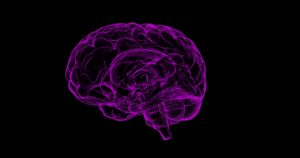
- Have you ever had to memorize something for school? Maybe you had to recite a poem. There was a small part in the drama show. You were leading a classroom debate. We’ve all been tasked to work our memory since we were babies. Think about it! Anytime we learn something new, we are constantly pulling from our memory, asking questions like “Have I done or seen this before?” “What do I already know about this topic?” or “How can I make understanding this a little bit easier?” We try to put things into a familiar context. It’s second-nature. But it’s not necessarily what we’re learning or recalling that is key. The how is just as important. Understanding and cultivating how we learn allows us to take in new information more efficiently and to keep on learning as we age.
- It was once thought that the human brain could not grow. That, regardless of who we were or what we did, our capacity to learn and retain information was limited once we reached adulthood. How happy, how smart, how focused we were could not improve. And as we aged, these processes would inevitably decline. We obviously now know these assumptions to be false, and more research has been done to show just how plastic – or changeable – our brains are.
- In a study about brain plasticity, undergraduate students were tasked with maintaining a wellness routine for six weeks to test how much our brains can change as a result of habits. This multi-faceted approach included exercise, deep-thinking and mindfulness training. At the end of the six weeks, students who participated in the experiment showed significant improvement in cognitive, physical and emotional health in comparison to students who did not maintain this routine.
- Now how does memory come into play? One of the factors measured within the experiment was “working memory.” Working memory is a fancy way of saying short-term memory. Think of it as a mental placeholder, where we store information that we might need later. And a way to test working memory is by measuring the frequency of mind-wandering – or daydreaming. Students were asked to complete tasks and track how often their mind wandered. And at the end of the experiment, these same students showed tremendous improvement with their focus on tasks and ability to recall new information, and they saw a reduction in how often their minds wandered.
- One part of the routine that may have had a significant influence on their memory was the mindfulness training. The students incorporated one hour of meditation and they did this daily over a relatively long period of time. They essentially cultivated the habit of mindfulness. As we know, meditation is focusing our attention on the present moment. And if there is one critical factor with regards to improving memory, it is focus. Other studies have explored the effect mindfulness has on working memory and saw the same results as the experiment previously mentioned: increased awareness, better comprehension, greater focus and overall improved recollection.
- We rely on our memory every day and it’s not something we should take for granted. There are ways that we can help prevent our memory from declining and it helps to start at an early age. Mindfulness is a holistic, no-equipment-necessary tool to keep our brains sharp. The benefits have proven to transcend the meditation mat, seeping into various aspects of our lives. But we don’t have to meditate for an hour each day to reap the rewards.
- Start small – take just 5 minutes in the morning to focus your attention on the present moment.
- Try Lumosity. This app has over 25 kinds of games created by scientists that help train your brain! Fit Brains Trainer is another app filled with games that work your cognitive and emotional intelligence.
- Set alarms for random times throughout the day as a reminder to bring your attention to the task at hand.
- When learning something new, go all in! Be present with the learning process.
- And at the end of the day, reflect – use that memory and write down 3 things you are grateful to have learned that day. It will be a sweet reminder years from now when you look back and say, “Oh yes, I remember that.”